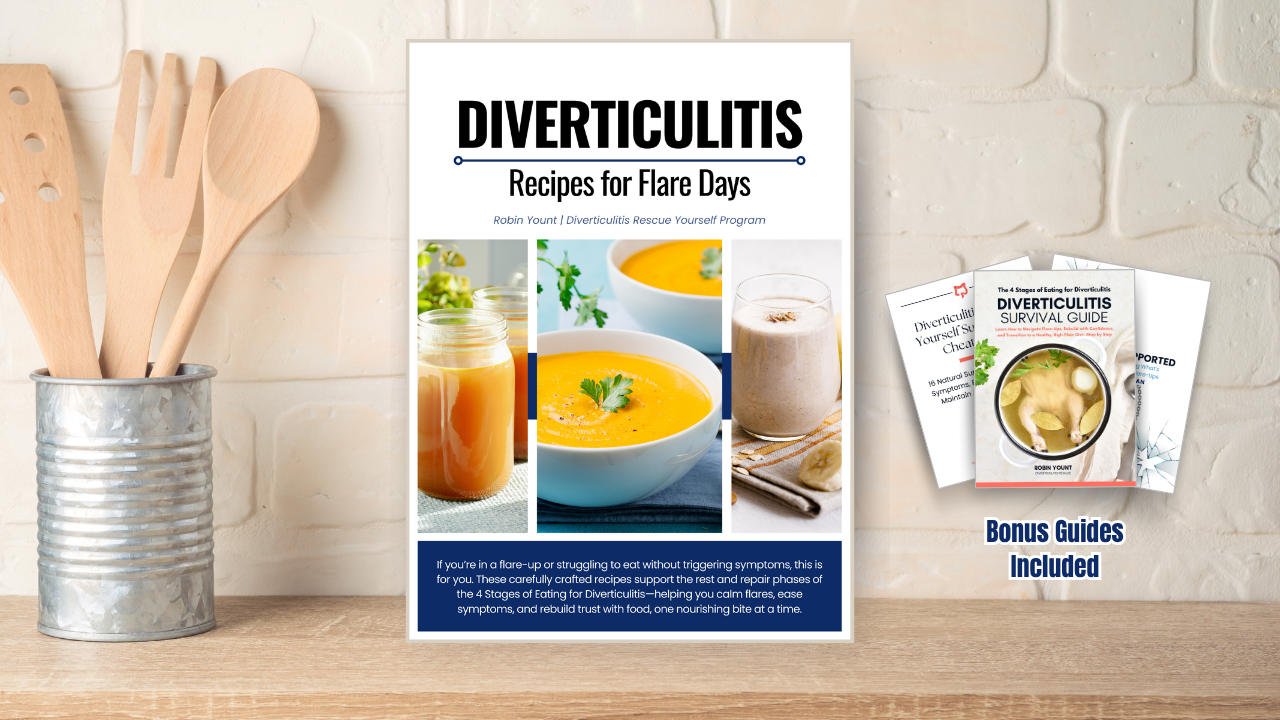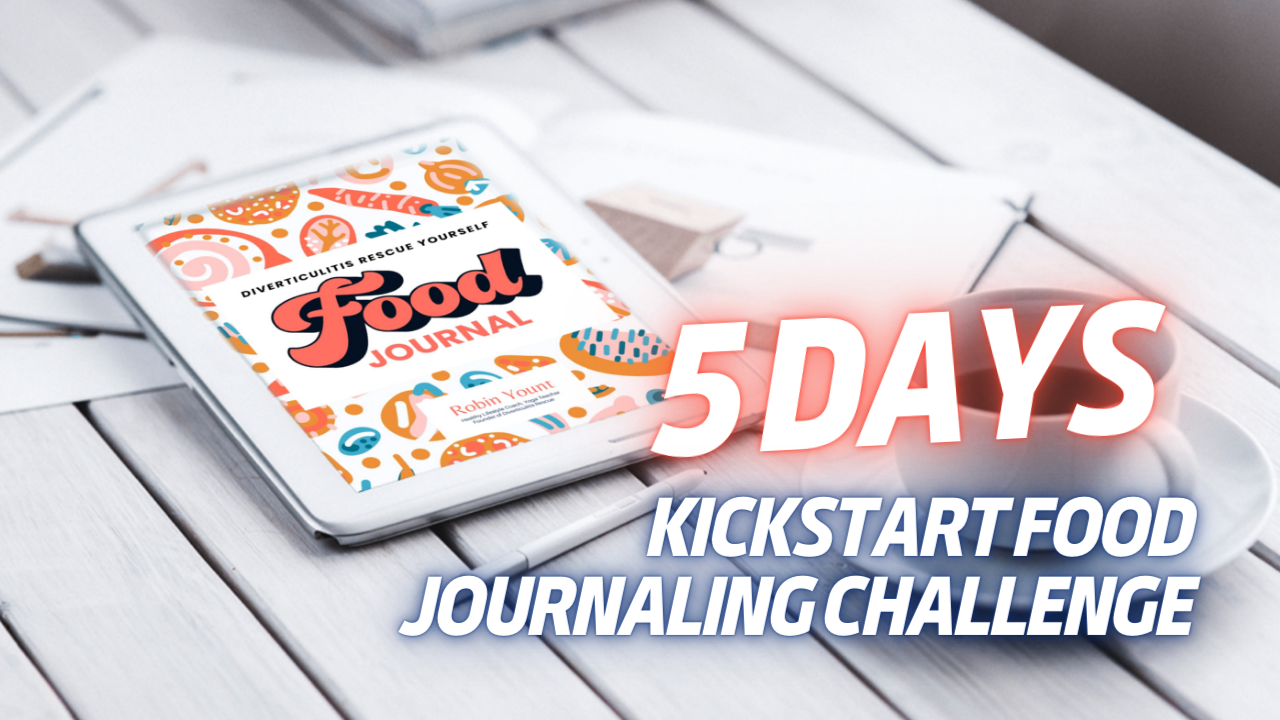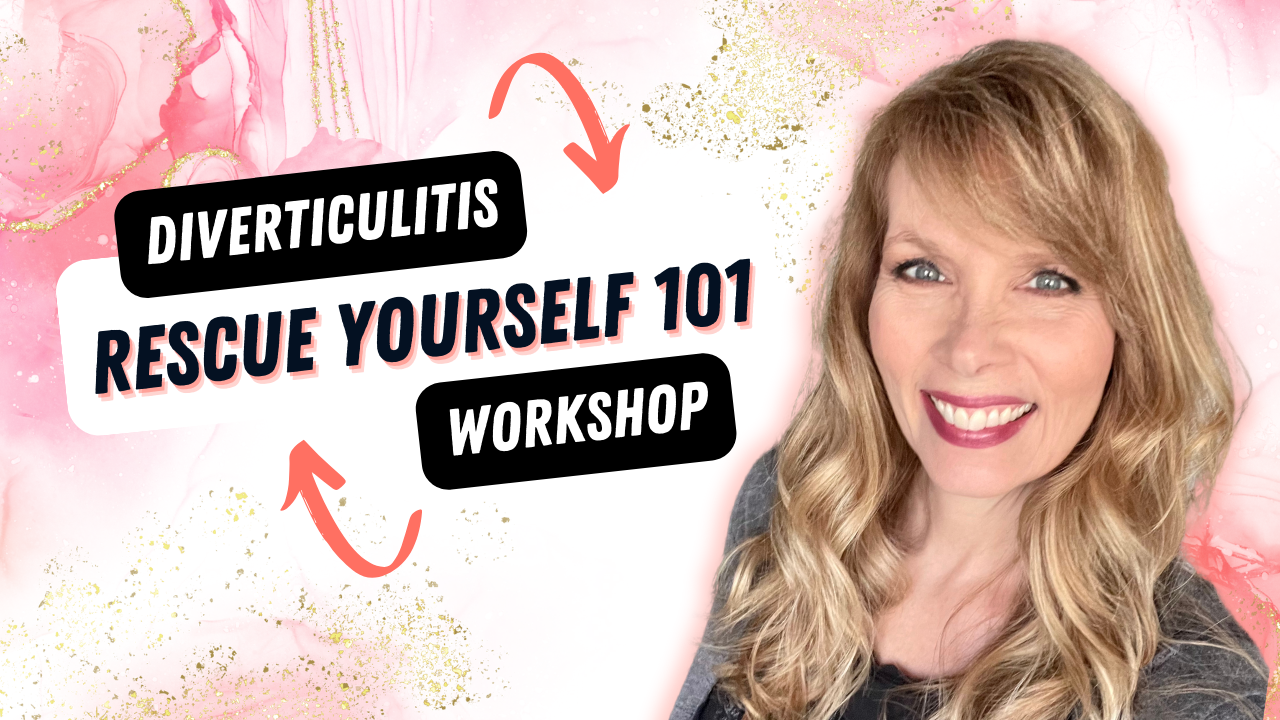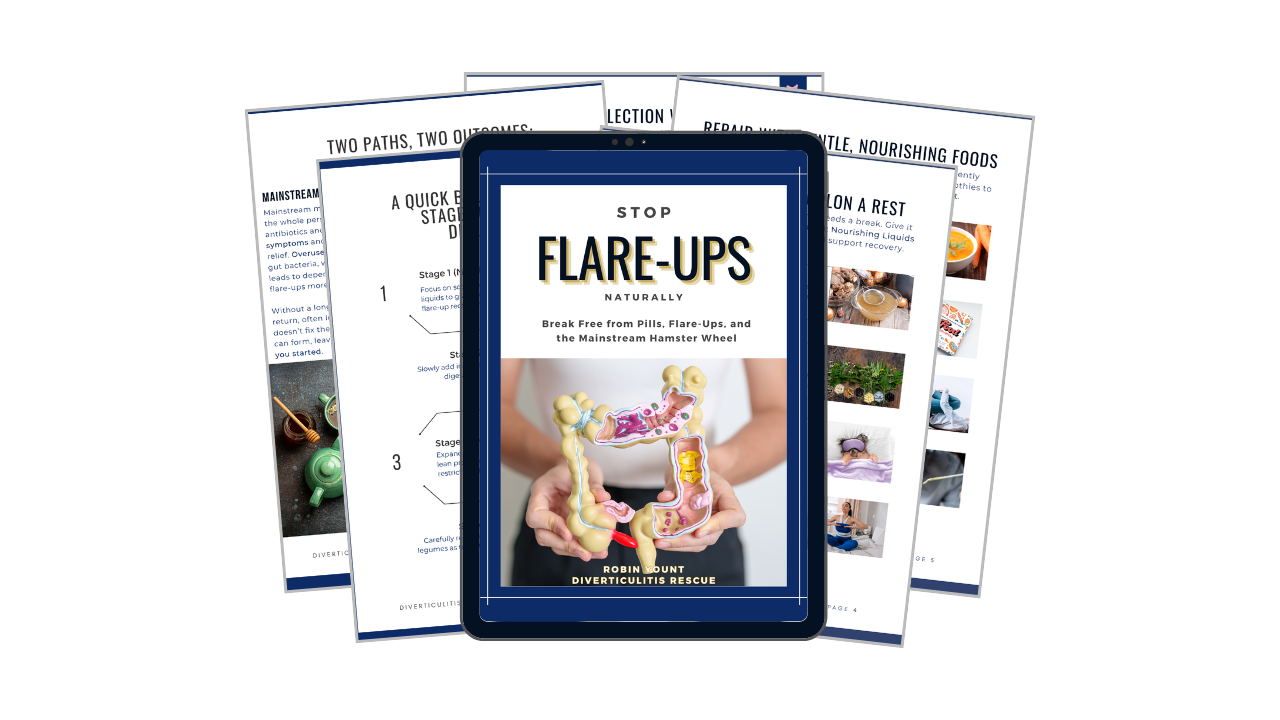The Negative Impact of Food Additives on Gut Health: Understanding the Link to Chronic Disease
Apr 23, 2024
In today's fast-paced world, processed foods have become a staple in many diets. However, what we may not realize is that these convenient food options often contain a range of additives that can have a detrimental effect on our gut health. In this blog post, we will delve into the negative impact of food additives on gut health, exploring their effects on the microbiome, inflammation, and their association with conditions such as leaky gut, diverticulitis, and gastritis.
Exploring Diverticulitis and its Connection to Gut Health
Diverticulitis is a condition that affects the digestive system, specifically the colon. It occurs when small pouches, known as diverticula, form in the lining of the colon and become inflamed or infected. While the exact cause of diverticulitis is not fully understood, research suggests that certain factors, including diet, play a significant role in its development.
One key aspect of managing diverticulitis is maintaining a healthy gut. The gut, or gastrointestinal tract, is responsible for digestion, nutrient absorption, and overall gut health. When the gut is compromised, it can lead to various digestive issues, including diverticulitis.
The link between food additives and gut health is particularly relevant for individuals with diverticulitis. Consuming processed foods that contain additives can exacerbate inflammation, disrupt the gut microbiome, and contribute to the development or worsening of diverticulitis symptoms. By understanding this connection, individuals with diverticulitis can make informed choices about their diet and take steps to support their gut health while managing symptoms effectively.
Understanding the Harmful Effects of Food Additives on Your Health
Disruption of the Microbiome: The delicate balance of bacteria in our gut, known as the microbiome, plays a crucial role in our overall health. Unfortunately, food additives can disrupt this balance, leading to dysbiosis and an imbalanced microbiome. This imbalance can have far-reaching effects on our digestive system and overall well-being.
Increased Inflammation: Many food additives, such as artificial sweeteners and preservatives, have been linked to increased inflammation in the gut. Chronic inflammation can contribute to the development of various chronic diseases, including inflammatory bowel disease, irritable bowel syndrome, and even certain types of cancer.
Leaky Gut Syndrome: One of the most concerning effects of food additives on gut health is their potential to weaken the intestinal barrier, leading to a condition known as leaky gut syndrome. This condition is characterized by increased permeability of the gut lining, allowing toxins, undigested food particles, and bacteria to leak into the bloodstream. This triggers an immune response, leading to inflammation and a host of health issues.
Impaired Nutrient Absorption: Certain food additives, such as emulsifiers, can disrupt the absorption of essential nutrients in the gut. This can result in nutrient deficiencies, even if you're consuming a well-rounded diet. Over time, these deficiencies can impact overall health and contribute to the development of chronic diseases.
Gut Dysmotility: Artificial colors and flavors found in many processed foods have been associated with gut dysmotility. This condition refers to abnormal movement of the digestive system, leading to issues such as constipation or diarrhea. These disruptions in gut motility can further exacerbate digestive problems and affect overall gut health.
Increased Risk of Diverticulitis: Diverticulitis is a condition characterized by inflammation and infection of small pouches in the colon. Long-term consumption of food additives that contribute to inflammation and gut dysbiosis may increase the risk of developing diverticulitis. By prioritizing whole, unprocessed foods, we can reduce the likelihood of this painful condition.
Aggravation of Gastritis: Gastritis, an inflammation of the stomach lining, can be worsened by certain food additives, such as monosodium glutamate (MSG). Individuals with gastritis should be mindful of their intake of processed foods containing these additives to manage their symptoms effectively.
Disruption of Hormonal Balance: The gut plays a crucial role in maintaining hormonal balance throughout the body. However, certain food additives, including artificial hormones and flavor enhancers, can disrupt this delicate balance. This disruption can lead to hormonal imbalances, which can have far-reaching effects on overall health and well-being.
Association with Chronic Diseases: Long-term consumption of food additives has been linked to an increased risk of developing chronic diseases. Conditions such as obesity, diabetes, cardiovascular disease, and certain types of cancer have all been associated with the regular consumption of processed foods containing additives. By prioritizing whole, nutrient-dense foods, we can reduce the risk of these chronic diseases.
Effective Ways to Counteract the Adverse Effects of Food Additives and Improve Your Digestive Health Naturally
To mitigate the negative impact of food additives on gut health and manage diverticulitis effectively, here are some practical solutions to consider:
- Opt for Whole, Unprocessed Foods: Choose a diet rich in organic fruits, vegetables, whole grains, lean proteins, and healthy fats. These foods provide essential nutrients and fiber while minimizing exposure to harmful additives.
- Read Labels and Choose Pronounceable Ingredients: When purchasing packaged foods, read the ingredient list carefully. Avoid products with artificial additives, preservatives, and flavor enhancers. Instead, choose products with simple, recognizable ingredients.
- Embrace Natural Alternatives: Enhance the flavor of your meals with herbs, spices, and natural seasonings instead of relying on processed sauces or seasoning mixes. This allows you to enjoy delicious meals while avoiding the negative effects of food additives.
- Explore Natural Remedies and Holistic Approaches: Consider incorporating natural remedies and holistic practices into your routine to support gut health. This may include probiotics, herbal supplements, stress management techniques, and regular exercise.
Conclusion
The negative impact of food additives on gut health is a significant concern in today's society. By understanding the effects of these additives on our health, we can make informed choices about the foods we consume.
By eliminating processed foods with additives and adopting healthy eating habits, such as prioritizing whole, unprocessed foods and exploring natural alternatives, you can manage diverticulitis, reduce inflammation, and lower the risk of chronic diseases. Remember, even small changes in your diet and lifestyle can have a significant impact on your diverticulitis symptoms and overall digestive wellness.
For more information and resources on how to safely adopt a healthy, high-fiber diet using my proven 4-stage system for individuals with diverticulitis, visit our website at www.diverticulitisrescue.com. Discover the step-by-step approach that will guide you through each stage, helping you gradually transition to a diet that supports your digestive health and manages your diverticulitis symptoms naturally and effectively.
Take control of your digestive health and embrace a nourishing lifestyle today. Visit our website to learn more about our comprehensive program and start your journey towards a flare-free life. Your gut will thank you!
Sources:
1. Harvard Health Publishing: "The Gut Microbiome: How Does It Affect Our Health?" - https://www.health.harvard.edu/staying-healthy/the-g
2. World Journal of Gastroenterology: "Food Additives and Their Impact on Gastrointestinal Health" - https://www.ncbi.nlm.nih.gov/pmc/articles/PMC6478664/
Stay Connected with My Newsletter
YOUR SOURCE FOR DIVERTICULITIS SUPPORT & INSPIRATION
Dive into our newsletter. Each edition delivers personal stories, natural strategies, and practical tips to help you find balance, relief, and strength on your journey.
Sign up with your email to stay connected and gain exclusive diverticulitis insights to support your gut health and a flare-free life.
We hate SPAM. We will never sell your information, for any reason.












